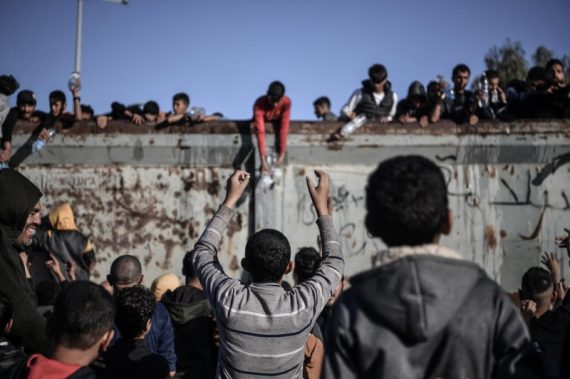H
uman Rights Watch (HRW) has accused Israel of committing a war crime by attempting to starve the population of the Gaza Strip amid ongoing genocide in Gaza. This allegation comes as the densely-populated coastal enclave faces a relentless siege and bombardment, resulting in widespread destruction and hunger.
Israeli Prime Minister Benjamin Netanyahu has pledged to continue the offensive against Hamas, which Israel holds responsible for an Oct. 7 attack that killed 1,200 people and took 240 captives. Despite increasing international calls to protect civilians, Israel continues to target them, with around 19,000 Palestinians killed.
HRW adds that Israeli forces are intentionally blocking the delivery of essential supplies like water, food, and fuel to Gaza’s 2.3 million residents, while also destroying agricultural areas. “The Israeli government is using starvation of civilians as a method of warfare in the occupied Gaza Strip,” HRW stated in its report, calling on world leaders to condemn this act.
Civilians are killed everyday
The conflict has led to mounting civilian casualties. The latest attacks in the Jabalia refugee camp resulted in 90 Palestinians killed, while strikes on Gaza’s main hospital, Al Shifa, and other locations have caused further fatalities and injuries. The health ministry in Gaza also reported that an Israeli tank shell hit the maternity building of Nasser Hospital in Khan Younis, killing a 13-year-old girl.
On the diplomatic front, the United Nations Security Council is poised to vote on a resolution demanding improved aid access for Gaza. This draft resolution, contingent on negotiations between the United States and the United Arab Emirates, calls for monitoring of aid deliveries through land, sea, and air routes.
Violence has also escalated in the occupied West Bank, with four Palestinians killed in an Israeli army raid on the Faraa refugee camp. The ongoing conflict continues to exacerbate the humanitarian crisis in the region, drawing international attention and concern.
Two months of starvation
According to HRW, for over two months, Israeli policies have systematically deprived the Gazan population of essential supplies such as food and water. Shakir stated, “For over two months, Israel has been depriving Gaza’s population of food and water, a policy spurred on or endorsed by high-ranking Israeli officials and reflecting an intent to starve civilians as a method of warfare.”
In its investigation, HRW interviewed 11 displaced Palestinians in Gaza between November 24 and December 4, 2023. The testimonies reveal the dire circumstances faced by the population. Residents recounted their struggle to access basic necessities, with one man from northern Gaza saying, “We had no food, no electricity, no internet, nothing at all.”
In southern Gaza, interviewees described a critical shortage of potable water and food, leading to empty shops, long lines, and skyrocketing prices. “You are on a constant search for things needed to survive,” a father of two shared. The United Nations World Food Programme (WFP) corroborated these accounts, reporting on December 6 that a vast majority of households in northern Gaza and two-thirds in southern Gaza experienced at least one full day and night without food.
This stark condemnation from HRW adds to the growing international outcry against the escalating humanitarian crisis in Gaza. The situation continues to draw attention to the adherence to and enforcement of international humanitarian laws in conflict zones.
Source: Human Rights Watch.
Recommended





